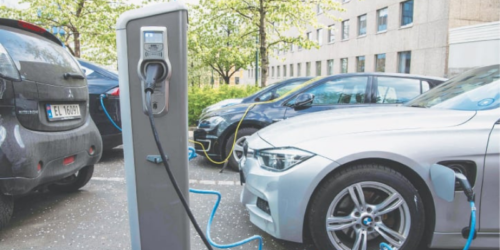Turkey should determine a road map that ensures reaching at least 2 million electric vehicles and over 200,000 public charging sockets by 2030, said the Turkey Electric Vehicles Outlook report released by Sabancı University’s Istanbul International Center for Energy and Climate (IICEC) on Jan. 11.
In the report, the IICEA suggested “strengthening the individual and corporate entrepreneurship ecosystem and human resources potential to help position Turkey as a regional and global actor in EVs and e-mobility.
The additional electricity demand of about 6 terawatt-hours per year by 2030 could be met from clean power generation with an average of $1.3 billion spending in renewable-energy-based capacity,” said the report.
“Recent investments in EV production by TOGG [Turkey’s Automobile Initiative Group] and Ford Otosan are of great importance for developing domestic production capabilities and for embracing technology-oriented sustainability, a critical factor for the regional and global competitiveness of the sector,” it added.
TOGG was presented to the world for the first time at the Consumer Electronics Show (CES) held in Las Vegas last week. Trial production will start at the end of July 2022 and the first mass-produced vehicle will be ready at the end of 2022.
Ford Otosan – a joint venture of Koç Holding and U.S. giant Ford – has started works to establish a battery assembly factory for electric vehicles.
Last year, petrol car sales took a share of 66.5 percent (373,600 units), while hybrid car sales’ share owas 8.8 percent (49,493 units). Only 2,846 electric cars were sold last year.





